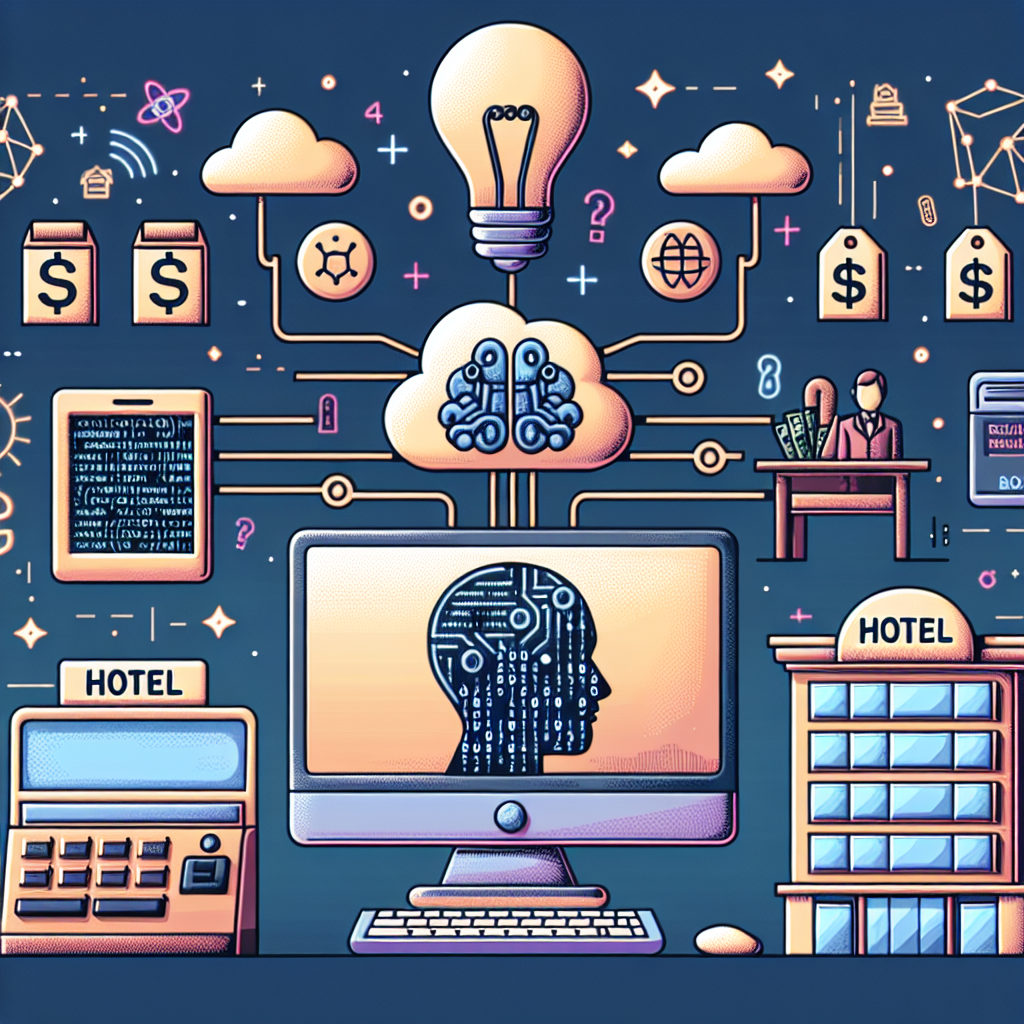In recent years, the hospitality industry has seen a significant shift towards implementing artificial intelligence (AI) technology in revenue management and pricing strategies. AI has revolutionized the way hotels and other hospitality businesses set prices, optimize revenue, and enhance customer satisfaction. This article will explore the role of AI in enhancing revenue management and pricing strategies in the hospitality industry, as well as the benefits and challenges associated with its implementation.
1. What is AI in Revenue Management and Pricing Strategies?
AI refers to the use of machine learning algorithms and data analytics to automate and optimize various processes in revenue management and pricing strategies. In the hospitality industry, AI can analyze vast amounts of data, such as historical booking patterns, competitor pricing, market demand, and customer preferences, to make accurate pricing decisions in real-time. AI algorithms can also predict future demand and adjust prices dynamically to maximize revenue and profitability.
2. Benefits of AI in Revenue Management and Pricing Strategies
– Improved Pricing Accuracy: AI algorithms can analyze complex data sets and patterns to accurately predict demand and set prices accordingly. This helps hotels optimize revenue and maximize profitability.
– Real-Time Pricing Adjustments: AI enables hotels to adjust prices in real-time based on market demand, competitor pricing, and other factors. This dynamic pricing strategy helps hotels stay competitive and capture more revenue opportunities.
– Personalized Pricing: AI can analyze customer data and preferences to offer personalized pricing options tailored to each guest. This enhances customer satisfaction and loyalty, leading to increased revenue and repeat business.
– Forecasting and Demand Prediction: AI algorithms can analyze historical data and market trends to forecast future demand accurately. This helps hotels optimize inventory, pricing, and distribution strategies to maximize revenue.
– Cost Savings: By automating pricing decisions and revenue management processes, AI helps hotels reduce manual errors, save time, and lower operational costs. This enables hotels to focus on strategic initiatives and improve overall efficiency.
3. Challenges of AI in Revenue Management and Pricing Strategies
– Data Quality and Integration: AI relies on high-quality data to make accurate predictions and pricing decisions. Hotels may face challenges in integrating data from multiple sources and ensuring data accuracy and consistency.
– Training and Implementation Costs: Implementing AI technology requires significant investment in training, infrastructure, and software. Hotels need to allocate resources and budget effectively to leverage AI effectively in revenue management and pricing strategies.
– Regulatory Compliance: Hotels must comply with data privacy regulations and ethical guidelines when using AI technology. Ensuring data security and protecting customer information are critical considerations in implementing AI in revenue management.
– Change Management: Adopting AI technology requires a cultural shift and change management within the organization. Hotels need to educate employees, build internal capabilities, and promote a data-driven mindset to successfully implement AI in revenue management and pricing strategies.
4. Case Studies: How AI is Enhancing Revenue Management and Pricing Strategies in the Hospitality Industry
– Marriott International: Marriott uses AI-powered revenue management systems to optimize pricing and inventory across its global portfolio of hotels. By analyzing historical data, market trends, and customer preferences, Marriott can forecast demand accurately and adjust prices dynamically to maximize revenue.
– Hilton Worldwide: Hilton leverages AI technology to personalize pricing and offers for its loyalty program members. By analyzing customer data and booking patterns, Hilton can tailor pricing options and promotions to each guest, leading to increased customer satisfaction and loyalty.
– AccorHotels: AccorHotels uses AI algorithms to optimize revenue and pricing strategies for its diverse portfolio of brands and properties. By automating pricing decisions and forecasting demand, AccorHotels can maximize revenue and profitability across its global network.
5. FAQs
Q: How does AI help hotels set competitive prices?
A: AI analyzes market demand, competitor pricing, and customer preferences to set prices that are competitive and maximize revenue opportunities.
Q: Can AI predict future demand accurately?
A: Yes, AI algorithms can analyze historical data and market trends to forecast future demand and optimize pricing and inventory strategies accordingly.
Q: How does AI personalize pricing for customers?
A: AI analyzes customer data and booking patterns to offer personalized pricing options tailored to each guest’s preferences and behavior.
Q: What are the key benefits of using AI in revenue management and pricing strategies?
A: The key benefits of AI include improved pricing accuracy, real-time pricing adjustments, personalized pricing, forecasting and demand prediction, and cost savings.
In conclusion, AI technology is playing a crucial role in enhancing revenue management and pricing strategies in the hospitality industry. By leveraging AI algorithms to analyze data, forecast demand, and optimize pricing decisions, hotels can maximize revenue, improve customer satisfaction, and stay competitive in a rapidly evolving market. While there are challenges associated with implementing AI technology, the benefits outweigh the risks, and hotels that embrace AI in revenue management and pricing strategies will gain a competitive edge and drive sustainable growth in the long run.

